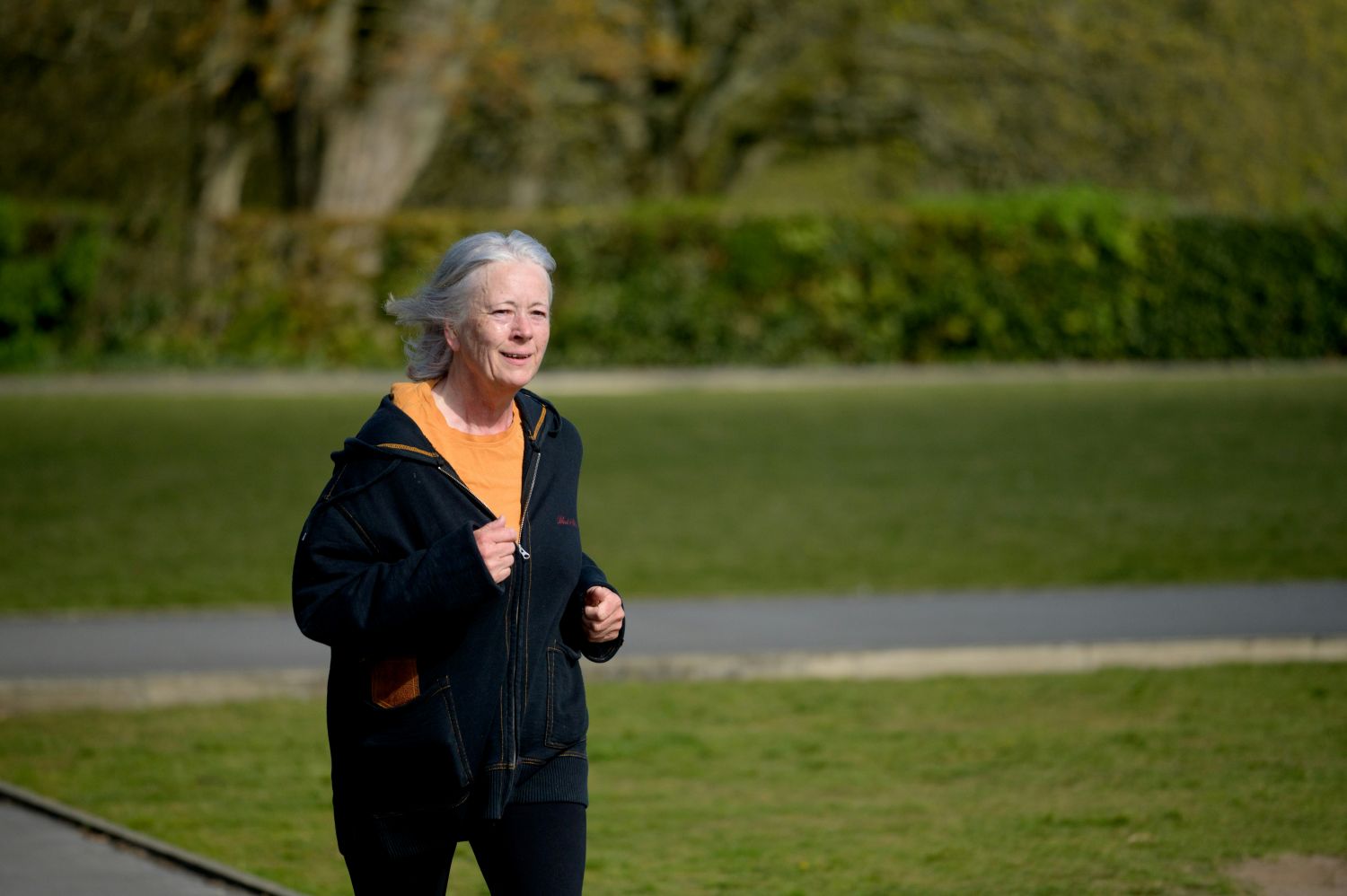Why You Don’t Need Permission to Get Moving: UConn Experts Call for Sweeping Changes to Exercise Participation Guidelines
It is well-established that exercise has tremendous health benefits in terms of preventing and managing a host of diseases. But current recommendations don’t fully reflect this.
A group of medical professionals and experts have published a paper in Current Sports Medicine Reports urging the American College of Sports Medicine (ACSM), the premier sports medicine professional organization, to lighten up their recommendations for medical clearance prior to exercise, including individuals considered “high-risk.”
Authors on the paper include Board of Trustees Distinguished Professor Linda Pescatello from the Department of Kinesiology (College of Agriculture, Health and Natural Resources) and Dr. Peter Robinson, assistant professor of cardiology at UConn Health.
The writing group emphasizes the significant benefits of exercise for all people, including those deemed “high risk.” High-risk individuals include those with cardiovascular disease and metabolic disease such as diabetes.
“We’re trying to loosen up potential challenges that people may have for moving,” Pescatello says.
This recommendation differs from the current ACSM guidelines, which state all healthy adults should engage in 150 minutes of moderate physical activity or 75 minutes of vigorous intensity exercise weekly or a combination of the two, and engage in muscle strength and endurance building activities twice a week.
The key word here is “healthy.” The authors of the new paper advocate for a change that would encourage all adults, including those with cardiovascular disease and diabetes, to engage in appropriate levels of physical activity, which can actually help to manage disease.
“Physical activity is the best thing for your health,” Pescatello says. “Exercise is medicine, and it has numerous health benefits.”
There is only one cardiovascular event per every 1.5 million hours of vigorous intensity exercise, according to the paper, meaning the risks are extremely low, but the benefits are great.
“Exercise is not risky,” Pescatello says. “The riskiest part of exercise is when you’re not a regular exerciser and you exercise rigorously suddenly.”
Research has shown that the greatest benefits of exercise are seen when those who are sedentary begin exercising.
“At an individual level, this transition away from sedentary behavior has been shown to have numerous benefits. In addition, if large numbers of individuals are able to make this transition, possibly by removing barriers and alleviating unfounded fears, we could see tremendous health benefits at the population level,” Robinson says.
“If you’re sedentary, if you’re not regularly physically active, the greatest health benefits are getting off the couch and doing something instead of doing nothing,” Pescatello says.
The authors encourage a change that would indicate that even individuals with cardiovascular disease or diabetes can begin light-level physical activity without the need for a medical evaluation.
They emphasize the importance of switching from a model in which people must seek medical “clearance,” a term without a specific medical definition, before participating in exercise to one that assumes light-to-moderate physical activity is healthy and beneficial for all.
However, people should still consult a physician if they begin to experience new or changes to signs or symptoms of cardiovascular disease or diabetes, Pescatello says.
“Our message is to get people up and moving and not stopping that unless absolutely necessary,” Pescatello says.
This work relates to CAHNR’s Strategic Vision area focused on Enhancing Health and Well-Being Locally, Nationally, and Globally.
Follow UConn CAHNR on social media
Latest UConn Today
- Dr. Cato T. Laurencin Represents U.S. at U.S.-Africa Frontiers of Science, Engineering, and Medicine SymposiumUConn's Laurencin represented the U.S. at the third annual U.S.-Africa Frontiers of Science, Engineering, and Medicine Symposium, held in Kigali, Rwanda.
- Partnering to Provide Dental Care to Special Needs PatientsUConn dental residents gain experience practicing at Hospital for Special Care
- Support for International Students and ScholarsUConn launches a new webpage created to support UConn’s international students, scholars, and employees
- International Melville Conference at UConn Avery Point to Celebrate ‘Moby-Dick’ AuthorAbout two dozen framed artworks on loan from The Melville Society are part of a concurrent exhibition at the Alexey von Schlippe Gallery of Art from now through June 19
- It’s Not the Game, It’s the Group: Sports Fans Connect the Most Over RitualsThe study, by a UConn team of scientists, shows that levels of emotional connection and euphoria are on average higher during intense pre-game rituals than they are during the game itself
- Physics Breakthrough to Evaluate Fundamental Theory of NatureThe Muon g-2 Theory Initiative has published a white paper on the theoretical calculation of the anomalous magnetic moment of the muon, which will be compared with experimental results













